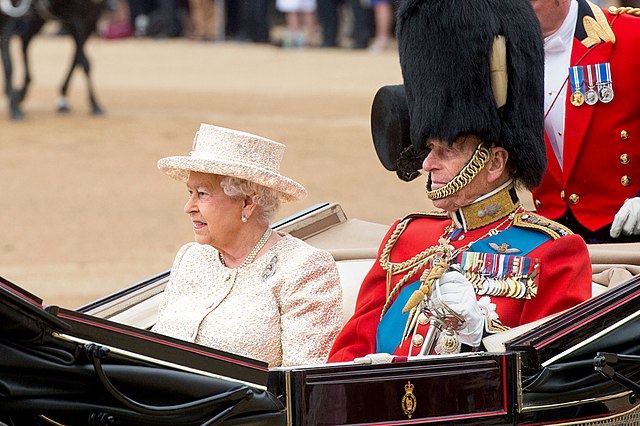The Queen’s Death Does Not Erase the Legacy of Colonialism
Esther Edohwokui
Staff Writer
The United Kingdom and the rest of the world watched in shock as Operation London Bridge was enacted as Queen Elizabeth II’s 70-year reign came to an end on September 8, 2022. Codenamed “London Bridge is Down,” the operation included the announcement of her death, the period dedicated to the Commonwealth’s mourning, and funeral details. The Queen passed away peacefully in her home at Balmoral Castle in Scotland at the age of 96, making her Britain’s longest reigning monarch, says The Washington Post.
According to The New York Post, tributes poured in from leaders around the world including former British colonies. President Muhammadu Buhari of Nigeria, a country that gained independence from Britain in 1960, expressed his sadness and acknowledged the Queen’s role in the development of modern Nigeria and dedication to making the world a better place. Brazil’s President Jair Bolsonaro announced a three-day national mourning period and noted that she was an inspirational figure not just for Britons, but for the whole world. South Korean President Yoon Suk-Yeol tweeted that the Queen left behind a legacy of good deeds that stemmed from her “belief in the cause of human freedom.”
However, these tributes in the Queen’s “good name” erase the legacy of British Colonialism. Her passing forces the world to consider what she stood for as a monarch of the Commonwealth realms. World leaders publicly acknowledging only the positives runs contrary to how others, especially people in African nations, view the Queen’s legacy and is an insult to former British colonies who fought for their right to rule themselves.
Although Queen Elizabeth’s death received a substantial number of reactions online, not all of them were positive, reports CNN. In places like Lagos, Nigeria, some young Africans are remembering the colonialist legacy the Queen left behind, which they came to understand through stories shared by their elders. Wanjiru Chelsea, named after her grandmother, tweeted how her grandmother used to recount how they were beaten and their husbands were taken from them, leaving them to look after their kids alone.
In places like Kenya, which was under British colonial rule until 1895 and received independence in 1964, the atrocities that occurred under British rule are at the forefront of people’s memories. The Mau Mau Uprising in 1952, the year Queen Elizabeth’s reign began, is one such memory. According to The Washington Post, the uprising began with Kenyans demanding independence but ended with more than 150,000 Kenyans being held without trial in detainment camps, where they were subjected to countless atrocities, such as castration and sexual assault. Here too, the legacy of British colonialism is shared by elders. Like Wanjiru Chelsea, another young girl heard her grandmother’s stories and shared her grandmother’s movement pass, a colonial document from the Mau Mau uprising meant to restrict Kenyans from free travel in British-ruled territories.
Some argue that the Queen took steps in the right direction in some countries by granting independence and approving reparations, but ignoring their fights for independence and the inadequacy of reparations ignores their suffering. According to CNN, in 2011, for example, a group of elderly Kenyans who were tortured under British colonial rule asked for compensation at London’s High Court, but were refused. Denying all responsibility, Britain’s Foreign and Commonwealth Office asked the judge to dismiss the case because other nations formerly under Britain’s Colonial rule would also ask for compensation. It was not until 2013 when Britain admitted fault, giving 5,000 Kenyans a compensation of 300,000 shillings – the equivalent of about $3,500 per victim. Mau Mau veterans claim this amount was not enough for the suffering they endured when the rebellion was suppressed.
Arguments that the Queen was merely a figurehead are ignorant. As a symbol of the British monarchy, she cannot be separated from its colonization of Africa and other former British colonies. Although she played a role in decolonization, the colonial wounds also inflicted during her reign are still fresh. The people of these nations, who have been forced to adapt to the dominant paradigm, live with significant trauma having lived in a world where their culture was deemed inferior.
Sipho Hlongwane, a writer based in Johannesburg, South Africa, explained in an article for The Washington Post that although colonialism might be history in the West, it is still the present for millions. South Africa’s history is littered with examples of British influence, including Apartheid practices borrowed from the British, racial disparities in poverty thanks to colonial-era discrimination, and British mining companies still having access to South African mines and raw materials. The Queen’s death is historic not only because of her long 70-year reign, but because of the inextricable ties her reign had with colonialism and imperialism.




